Related Research Articles

The President of the Republic of Poland is the head of state of Poland. Their rights and obligations are determined in the Constitution of Poland. The president heads the executive branch. In addition the president has a right to dissolve parliament in certain cases, veto legislation and represents Poland in the international arena.

The president of the Republic of China, commonly known as the president of Taiwan is the head of state of the Republic of China (ROC) and the commander-in-chief of the Republic of China Armed Forces.
An electoral college is a set of electors who are selected to elect a candidate to particular offices. Often these represent different organizations, political parties or entities, with each organization, political party or entity represented by a particular number of electors or with votes weighted in a particular way.
A presidency is an administration or the executive, the collective administrative and governmental entity that exists around an office of president of a state or nation. Although often the executive branch of government, and often personified by a single elected person who holds the office of "president", in practice, the presidency includes a much larger collective of people, such as chiefs of staff, advisers and other bureaucrats. Although often led by a single person, presidencies can also be of a collective nature, such as the presidency of the European Union is held on a rotating basis by the various national governments of the member states. Alternatively, the term presidency can also be applied to the governing authority of some churches, and may even refer to the holder of a non-governmental office of president in a corporation, business, charity, university, etc. or the institutional arrangement around them. For example, "the presidency of the Red Cross refused to support his idea." Rules and support to discourage vicarious liability leading to unnecessary pressure and the early termination of term have not been clarified. These may not be as yet supported by state let initiatives. Contributory liability and fraud may be the two most common ways to become removed from term of office and/or to prevent re-election
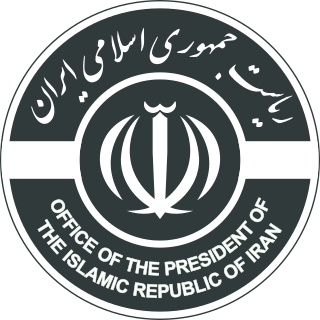
The president of Iran is the head of government of the Islamic Republic of Iran. The president is the highest-ranking official of Iran. The president carries out the decrees, and answers to the Supreme Leader of Iran, who functions as the country's head of state. Unlike the executive in other countries, the president of Iran does not have full control over the government, which is ultimately under the control of the Supreme Leader. Before elections the volunteers must be approved by the guardian council to become a president candidate. Those members of the guardian council are chosen by the supreme leader. The President of Iran is elected for a four-year term by direct vote and not permitted to run for three terms combined.
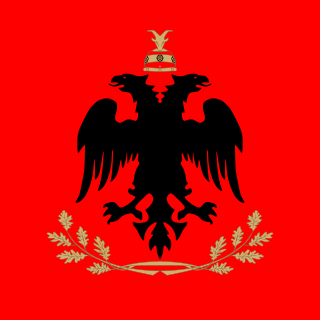
The president of Albania, officially styled President of the Republic of Albania is the head of state, commander-in-chief of the military and the representative of the unity of the Albanian people.
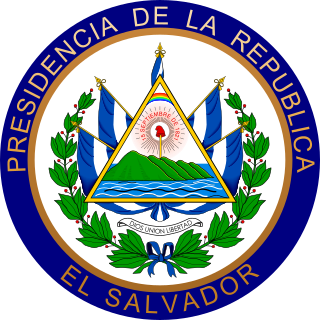
The president of El Salvador, officially known as the president of the Republic of El Salvador, is the head of state and head of government of El Salvador. He is also, by Constitutional Law, the commander-in-chief of the Armed Forces of El Salvador. The office was created in the Constitution of 1841. From 1821 until 1841, the head of state of El Salvador was styled simply as Head of State.

The president of the Federal Republic of Nigeria is the head of state and head of government of the Federal Republic of Nigeria. The president of Nigeria is also the commander-in-chief of the Nigerian Armed Forces. The president is elected in national elections which take place every four years. The offices, powers, and titles of the head of state and the head of government were officially merged into the office of the presidency under the 1979 Constitution of Nigeria. The current president, Muhammadu Buhari, took office on May 29, 2015, as the 15th president of the Federal Republic of Nigeria.
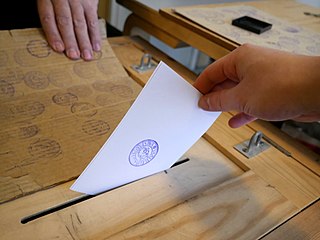
A presidential election is the election of any head of state whose official title is President.
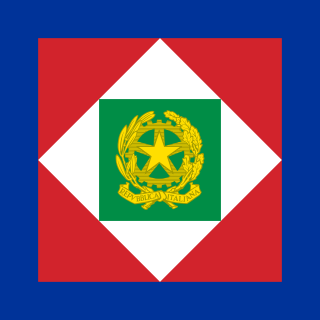
The president of Italy, officially denoted as President of the Italian Republic is the head of state of Italy. In that role, the officeholder represents national unity, guarantees that Italian politics comply with the Constitution of Italy and is the head of the Italian Armed Forces. The president's term of office lasts for seven years. The current holder is former Constitutional Judge Sergio Mattarella, who was elected on 31 January 2015.

The president of the Republic of Indonesia is the head of state and also head of government of the Republic of Indonesia. The president leads the executive branch of the Indonesian government and is the commander-in-chief of the Indonesian National Armed Forces. Since 2004, the president and vice president are directly elected to a five-year term.

The 1861 Confederate States presidential election of November 6, 1861, was the only presidential election held under the Permanent Constitution of the Confederate States of America. Jefferson Davis, who had been elected president and Alexander H. Stephens, who had been elected vice president, under the Provisional Constitution, were elected to six-year terms that would have lasted from February 22, 1862 until February 22, 1868. However, the terms expired on May 5, 1865 instead when the Confederate government dissolved, with Davis and Stephens both leaving office without successors.

The Provisional Constitution of the Federal Republic of Somalia is the supreme law of Somalia. It provides the legal foundation for the existence of the Federal Republic and source of legal authority. It sets out the rights and duties of its citizens, and defines the structure of government. The Provisional Constitution was adopted on August 1, 2012 by a National Constitutional Assembly in Mogadishu, Banaadir.

The Italian presidential election of 2015 was held on 29–31 January, following the resignation of incumbent President Giorgio Napolitano on 14 January 2015. The office was held at the time of the election by Senate President Pietro Grasso in an acting capacity. Only members of Italian Parliament and regional delegates are entitled to vote. As head of state of the Italian Republic, the President has a role of representation of national unity and guarantees that Italian politics comply with the Italian Constitution, in the framework of a parliamentary system.
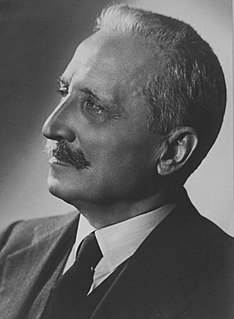
The 1946 Italian presidential election was undertaken to elect a provisional head of the Italian State on June 28, 1946.
References
- ↑ Zampano, Giada (2015-01-29). "Lawmakers in Italy Fail to Elect President in First Round of Voting". Wall Street Journal. ISSN 0099-9660 . Retrieved 2021-02-08.